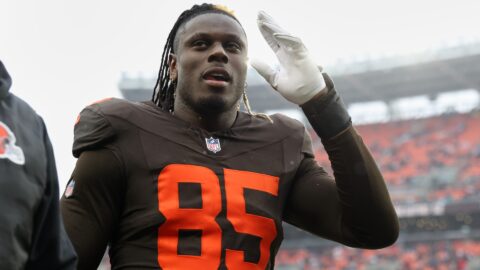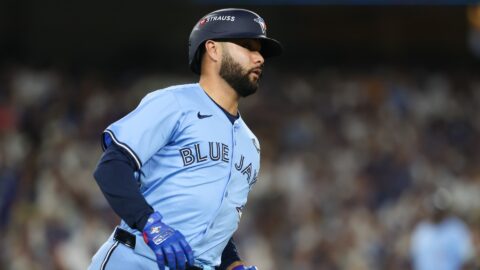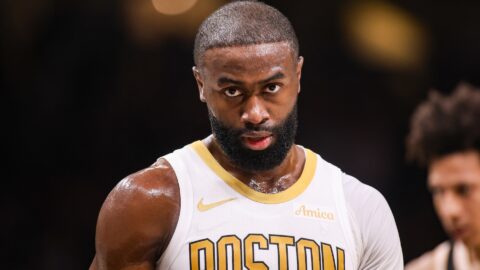So maybe Ray Lewis has a point.
The outspoken linebacker was clearly upset after the Ravens' loss to the Patriots on Sunday, mostly due to roughing the passer penalties called on the Ravens.
"Without totally going off the wall here, it's embarrassing to the game," Lewis told reporters after the game. "You can't do that. [Tom] Brady's good enough to make a play. Let him make his own play. You can't end the play like that, and then throw the flag. No, man. The embarrassing part is when he understands that, and he walks up to one of us and says, 'Oh, that was a cheap one.'"
"That's not football," Lewis added. "And that's the embarrassing part about it. Two great teams going at it, let them go at it. But you can't stop drives like that, you can't throw flags and say, 'Oh, you touched the quarterback.' Put flags on them. Put a red buzzer on them, so if we touch them, they're down."
Lewis' complaint seemed to focus more on the rules than the calls, and for that, he has a point.
The referee, by the standards set forth by the league, called the play by the letter of the law. If a defender's hand comes into contact with a quarterback's head at any point during a play, the flag is automatically thrown for a 15-yard penalty.
Taking two seconds to look at that rule, how can it possibly make sense? A football helmet is made of hard plastic, with heavy padding on the inside. The facemask is made of metal.
A hand, by contrast, is made of 27 small bones and a thin layer of skin. If a defensive player were to use his bare hand to try to hurt a quarterback, chances are there'd be some broken metacarpals before any sort of head injury.
Perhaps once or twice, we've seen a defender use his forearm like a club to hit a quarterback's head. In a situation like that, the flag can be thrown, for that is truly "a blow to the quarterback's head."
But a hand? On a helmet? That's just mad.
Of course, the Patriots suffered because of the rule as well, when Mike Wright's hand slipped off Ravens quarterback Joe Flacco's shoulder and landed on his facemask.
The difference was that the Patriots ended that drive with a Leigh Bodden interception.
The second roughing the passer call on the Ravens came in the second quarter, when linebacker Terrell Suggs divebombed — unprovoked — at the most famous surgically repaired knee in professional sports. Brady was smart enough to lift his leg off the ground to prevent any injury, and even though there wasn't a tremendous amount of contact, diving at a quarterback's knees will guarantee a 15-yard slap on the wrist every single time.
Still, Lewis' argument is only halfway worthy.
"[The quarterbacks] even know it," Lewis continued. "'If you get close to me, I can look for a penalty.' Did that win or lose the game? No, but it damned sure helped them score 14 points."
That's an excuse. A 14-year NFL veteran can't be making excuses after a loss.
The fact is, to win games in the NFL, a team needs to make plays. The Patriots were nearly done in by two roughing the passer calls in Week 1 against Buffalo, one of which was more than questionable. The Pats, however, forced a fumble and scored twice in the final 2:06 to win that game.
Again in Week 4, the Patriots made plays and won. The Ravens didn't.
In the end, no matter what the rules may be, making plays has always separated the contenders from the pretenders.



